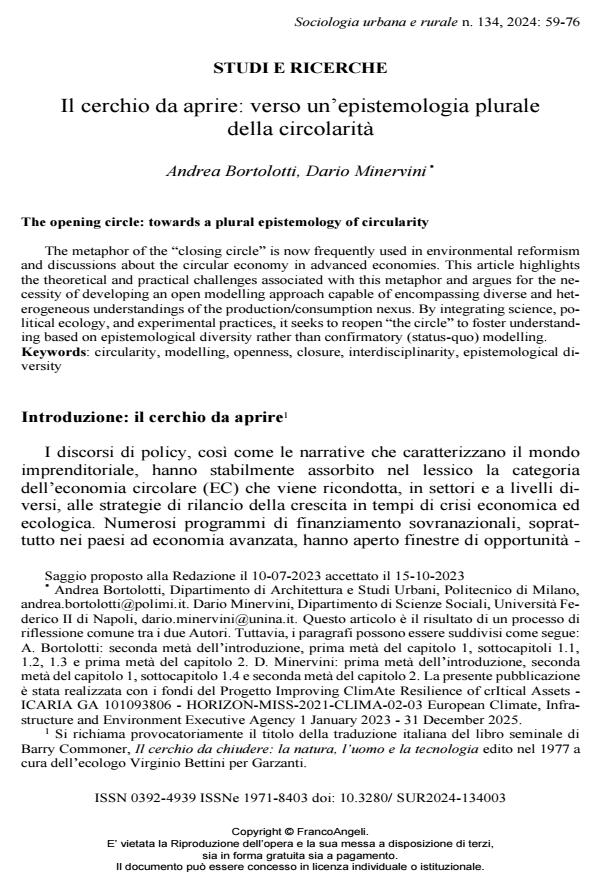The opening circle: towards a plural epistemology of circularity
Journal title SOCIOLOGIA URBANA E RURALE
Author/s Andrea Bortolotti, Dario Minervini
Publishing Year 2024 Issue 2024/134
Language Italian Pages 18 P. 59-76 File size 307 KB
DOI 10.3280/SUR2024-134003
DOI is like a bar code for intellectual property: to have more infomation
click here
Below, you can see the article first page
If you want to buy this article in PDF format, you can do it, following the instructions to buy download credits

FrancoAngeli is member of Publishers International Linking Association, Inc (PILA), a not-for-profit association which run the CrossRef service enabling links to and from online scholarly content.
The metaphor of the “closing circle” is now frequently used in environmental reformism and discussions about the circular economy in advanced economies. This article highlights the theoretical and practical challenges associated with this metaphor and argues for the necessity of developing an open modelling approach capable of encompassing diverse and heterogeneous understandings of the production/consumption nexus. By integrating science, political ecology, and experimental practices, it seeks to reopen “the circle” to foster understanding based on epistemological diversity rather than confirmatory (status-quo) modelling.
Keywords: circularity, modelling, openness, closure, interdisciplinarity, epistemological diversity.
Andrea Bortolotti, Dario Minervini, Il cerchio da aprire: verso un’epistemologia plurale della circolarità in "SOCIOLOGIA URBANA E RURALE" 134/2024, pp 59-76, DOI: 10.3280/SUR2024-134003